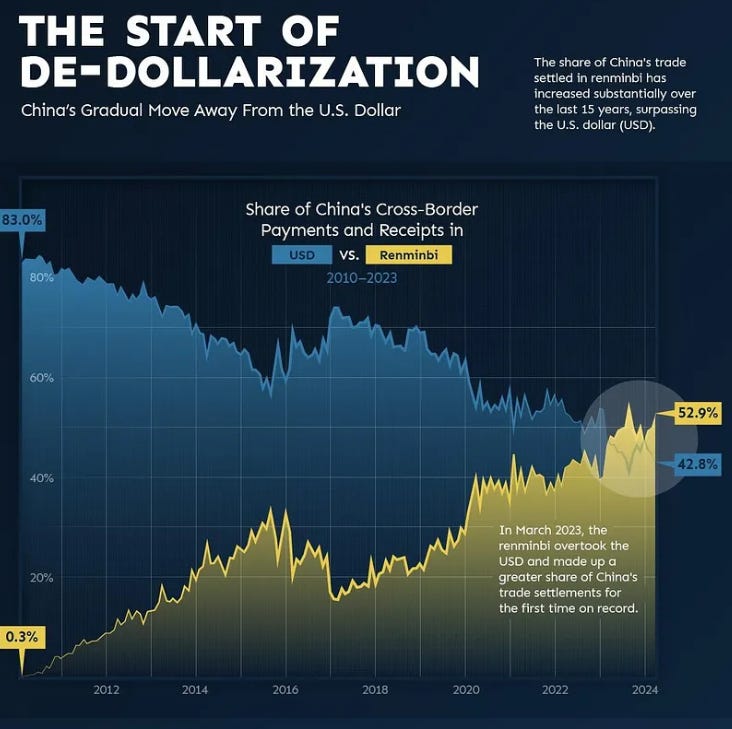“We are witnessing the birth of Bretton Woods III—a new world (monetary) order centered around commodity-based currencies in the East that will likely weaken the Eurodollar system and contribute to inflationary forces in the West. As a result, gold stands to benefit from this shift as a neutral reserve asset.”
– Zoltan Pozsar (March 2022)
On Dedollarizaton
Contents: (2600 words, 26 slides)
Introduction: The Shift Away from the Dollar
Causes of Dedollarization
Gold Benefits
The Mechanisms of Dedollarization
The Future of Gold in a Dedollarized World
Conclusion: The Path Forward
Introduction: The Shift Away from the Dollar
Dedollarization is no longer a fringe theory. It’s a real shift in global finance, driven by a range of factors from geopolitical tensions to sudden monetary policy changes. For decades, the U.S. dollar ruled as the world’s main reserve currency. Now, a growing number of countries are looking for alternatives. Sanctions, the “weaponization” of the dollar, and concerns over the Federal Reserve’s policy swings have all pushed central banks and governments to diversify.
In this changing environment, gold stands out. It’s neutral, widely trusted, and isn’t tied to any one nation’s policies. Many see it as a hedge against political risks and inflation. As new financial arrangements emerge—like bilateral trade deals, regional payment systems, and talk of gold-backed currencies—gold’s role expands. Below, we’ll explore the causes of dedollarization, the factors pushing gold to center stage, and how nations are paving the way for a future less bound to the dollar.
Causes of Dedollarization
1. The Weaponization of the Dollar
U.S. sanctions illustrate how the dollar can be used as a geopolitical tool. Freezing foreign reserves or denying access to dollar-based transactions puts countries like Iran, Russia, and Venezuela in a tough spot. After Russia’s reserves were partially frozen following the Ukraine invasion, many nations realized the dollar isn’t a neutral reserve asset. This move showed that heavy dependence on the dollar can be risky.




